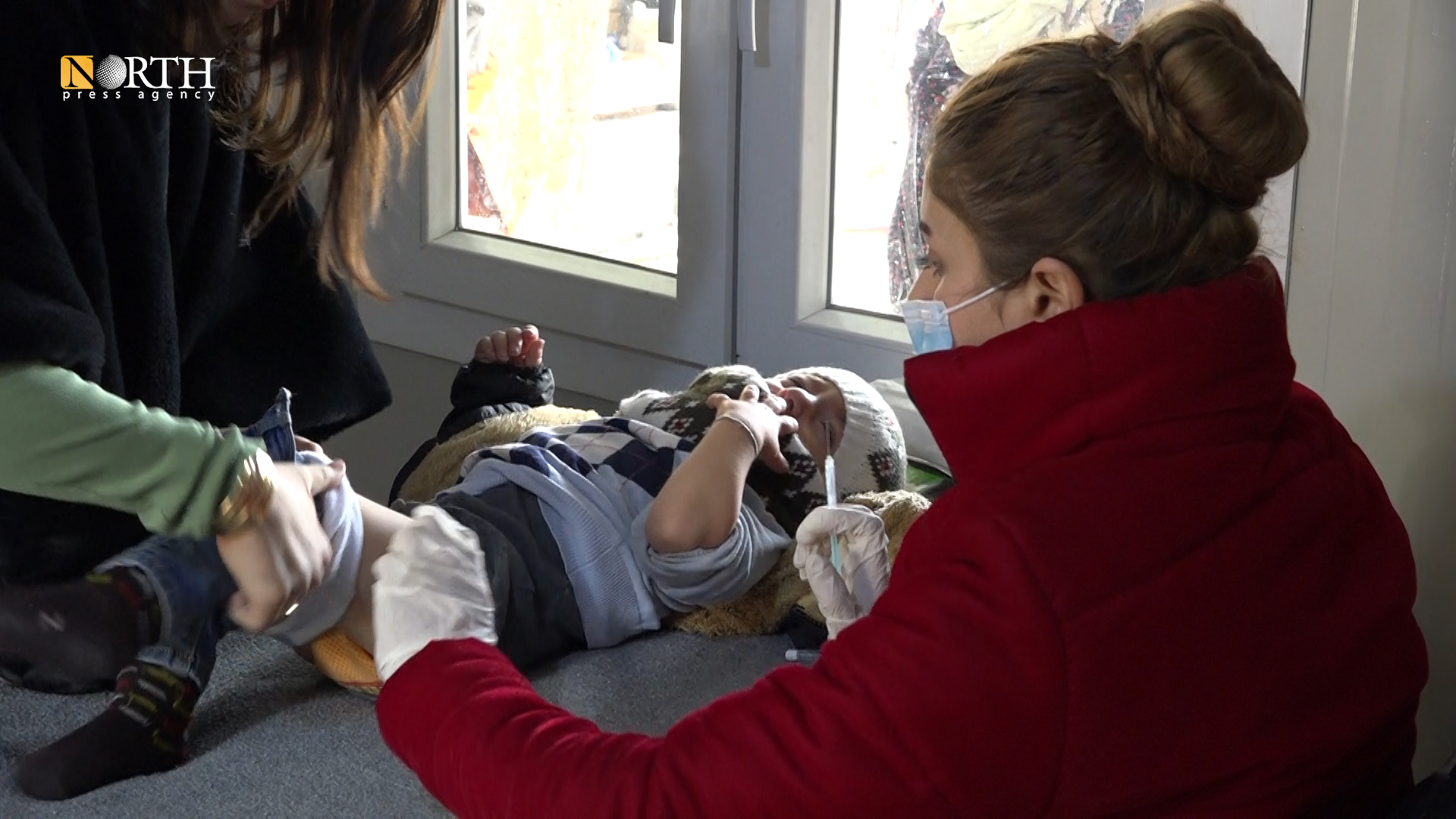KOBANI, Syria (North Press) – The number of cases of hepatitis patients has recently increased in the city of Kobani, northern Syria, in light of the lack of medicines and preventative vaccines in pharmacies, hospitals and health centers for about six months.
Most of those infected with the disease buy medicines from other Syrian regions at high prices, while those who need doses of vaccines are waiting for them to reach the Kurdish Red Crescent Center, which they provide for free if available.
Hepatitis is transmitted from one person to another through blood transfusion, using razors or non-sterile surgical tools, especially by dentists.
The presence of one case within the family causes the infection of the whole family with the virus, in addition to members of the medical staff including nurses, doctors, and workers in medical laboratories because of the nature of their work in dealing with blood samples.
High costs
Saleh Haj Rammo, 32, who is infected with hepatitis virus and lives in Kobani, said that he had to buy medicine from Aleppo.
Haj Rammo suffers from hepatitis B virus, while his wife tested positive for hepatitis C.
The hepatitis patients continue to be treated for several months or years, depending on the type of the virus, as one bottle of pills costs $ 40.
Haj Rammo pointed out that medicines are available in government pharmacies and hospitals in the city of Aleppo, “but in most cases we cannot, especially men, go to Aleppo because of the high costs of transportation and harassment by security forces.”
Ongoing infections
Ali Shahin, a pathologist in internal diseases, said that coronavirus had caused an increase in the number of cases of hepatitis infection, “as the medical activity was directed towards prevention and treatment of those infected with coronavirus.”
Shahin stated that the number of cases of hepatitis that are diagnosed in his private clinic per month ranges between five and ten.
There are no accurate data on the number of people infected with the disease in Kobani and its countryside in the absence of a special center for treating chronic diseases in the region, but Shahin estimated the number of the patients between 20 and 30 per month.
The types of hepatitis B and C are considered the most prevalent in the eastern Euphrates region, but B is the most prevalent due to its “hidden” transmission, according to Shahin.
The majority of infected cases are detected during blood test, at the request of doctors during visits to private medical clinics.
The hepatitis virus can be controlled in the event of early detection, but in the event that it leads to liver failure or cirrhosis, its treatment will require a longer period of time and more financial expenses, according to Shahin.
Missing vaccines
Shahin considered that it is necessary to conduct general tests once a year at least, in order to know the status of blood and indicators of viral infection.
He also indicated the need for the Health Board and humanitarian organizations operating in the region to establish a special center to diagnose and detect cases of hepatitis and conduct awareness campaigns on the disease, “because it is no less dangerous than the coronavirus.”
Gulistan Haji Ali, member of the Kurdish Red Crescent Organization, said that the hepatitis vaccines for adults and the elderly have not reached for about six months, as the vaccines were reaching them through humanitarian organizations such as World Health Organization (WHO).
About 50 to 70 people used to visit the center every month in order to receive the prevention vaccine, as their records include the names of 250 people who received the vaccine partially or completely, according to Haji Ali.
People infected with hepatitis receive three doses over a period of six months.
Haji Ali stated that the vaccines intended for children are available, “but in small quantities.”

